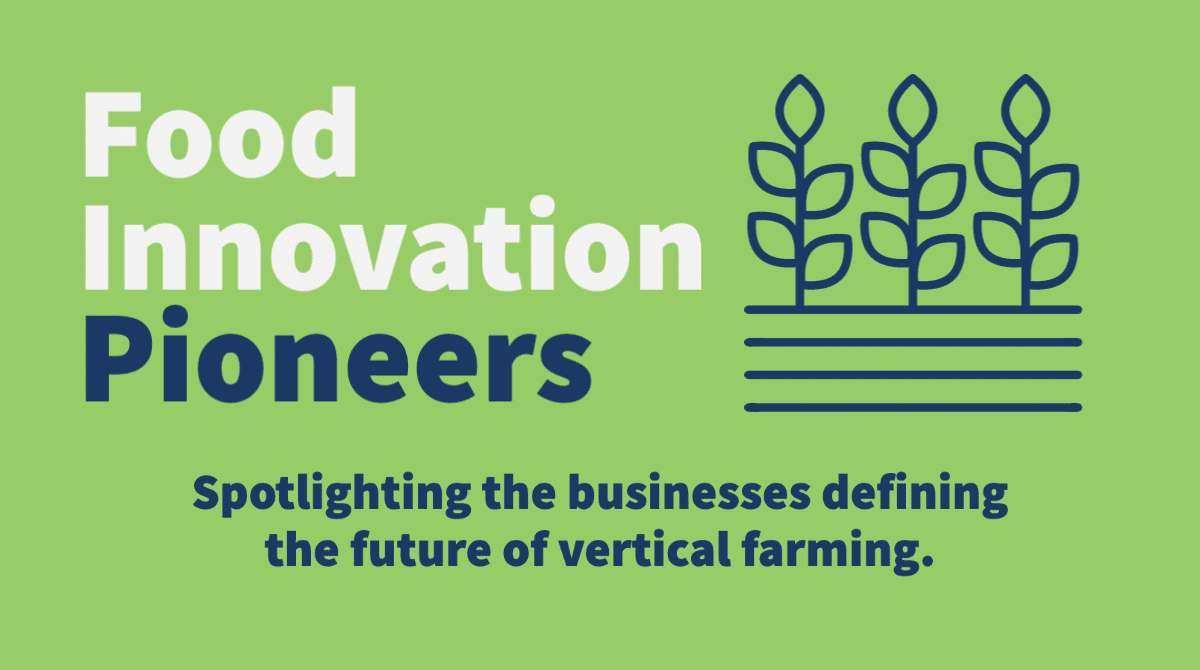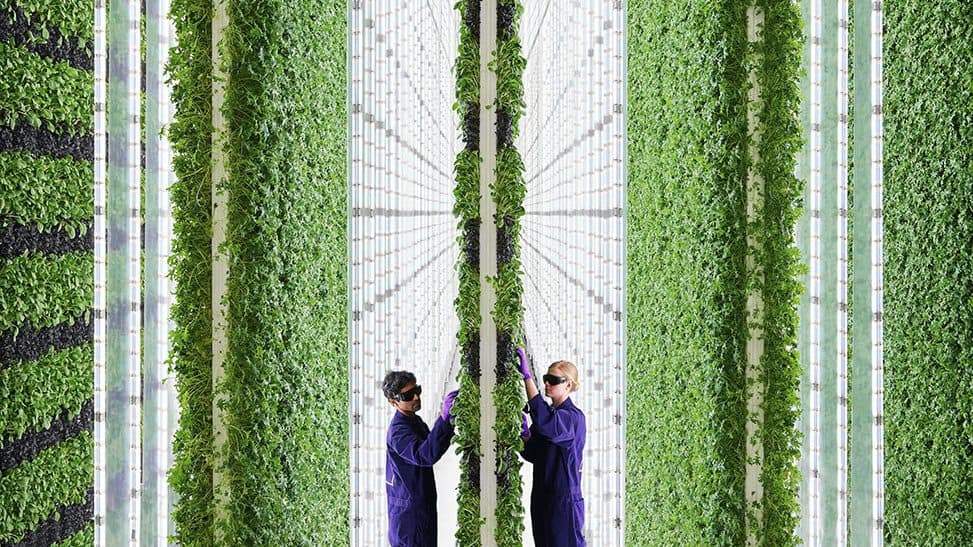Five vertical farming Game Changers to watch this year – Greenhouse Communications

Our global population is expected to reach nearly 10 billion people by 2050 (FAO). Not only is that a lot of people to feed, but this represents the significant challenge facing our agricultural systems. This month in our Food Innovation Pioneers Series, we look at what that means for the sector and the innovations shaping the future of farming.
We need to figure out how to supply enough food in a way that’s good for both people and planet – i.e. food that is nutritious and safe as well as sustainably produced. Most studies estimate we will need to boost production by 50-70% in the next three decades. To put that into perspective, we will need to produce more food in the next 35 years than has ever been produced in human history (Food Security).
But why is this figure so much higher than the actual population growth? In a nutshell, it’s partly because societies are becoming richer. Prosperity leads to new dietary habits, resulting in higher demand for resource intensive foods such as dairy and meat. This is also linked to urbanisation – more people moving to cities drives demand even further, and also competes with farmland. The UN projects nearly 70% of the world population will live in urban areas by 2050 (UN), leaving a big question mark over how to use resources more efficiently.

In the agriculture sector, there’s no shortage of new thinking around how to produce food more sustainably and efficiently. Smart solutions such as vertical farming or urban farming, for instance, are promising as we seek to meet the changing demands of city-dwellers and protect our planet’s precious resources.
All eyes are on this new wave of farming that has the potential to solve the challenges of modern agriculture. The high-tech environment of a vertical farm, which looks like something straight out of a science fiction film, can grow crops virtually anywhere using minimal water and land. It also removes the need for pesticides and chemicals altogether!
With new technologies entering the market, cheaper energy costs and high financial backing, this sector is at a tipping point. We’re excited to see how vertical and urban farming solutions continue to boom.
Here are our top five picks of game-changing businesses in Europe that are redefining farming as usual.
1. Infarm – Berlin, Germany
Founded in 2013, Infarm is one of the world’s fastest growing urban farming networks and is considered to be at the front line of the urban farming (r)evolution. With a desire to be self-sufficient and eat better, the founders started by growing their own food, enjoying all the flavour and nutrients without the chemical pesticides and transport mileage.
The farms are placed in various locations in the city, like supermarkets, restaurants and distribution centres, so that vegetables can grow and be harvested close to the moment of purchase or consumption. The entire Infarm network is connected to a central farming brain.
https://www.youtube.com/watch?v=l1MbD77aKiE2. Urban Crop Solutions – Waregem, Belgium
This Belgian startup, founded in 2014, started as a solution to a burning question: “How will we feed the world with the mounting pressure of climate change and with a wasteful global food supply chain?”. The company’s mission is to innovate for more sustainable food production methods through vertical farming. It develops and builds these indoor farms, including the plant recipes, hardware and software.
Part of EIT Food’s innovative network of RisingFoodStars, it now has over 25 Container Farms present throughout Europe, North America and Asia-Pacific.
“Indoor Vertical Farming reminds me of the early 3D printers about 20 years ago. Just like 3D printing then, indoor biology science now allows you to grow just about anything.” Tom Debusschere CEO, Urban Crop Solutions3. Jones Food Company (JFC) – Lincolnshire, UK
JFC opened the doors to Europe’s largest vertical farm in late 2018, with crops stacked over 17 layers and capable of growing hundreds of tonnes a year. The facility houses over 5,000m2 of growing space – that’s the equivalent of 26 tennis courts!
JFC understood early on that the only way vertical farming can provide quality produce at an affordable price is at scale. Its vertical farm also aims to grow produce as sustainably as possible using solar-powered energy, 100% reused water and 100% compostable packaging. The sky is the limit for this British start-up, eyeing no less than three further sites in the next 18 months.
4. AgriCool – Paris, France
Since its launch in 2015, AgriCool has used aeroponic methods to produce fruit and vegetables near the French capital, Paris. The company wanted to find a solution to better eating – one that doesn’t take up even more farmland or involve travelling a staggering 1500km (average) to reach your plate.
AgriCool’s mission is to build a sustainable food system by growing local, tasty and pesticide-free fruits and vegetables for everyone. Currently available in 70 stores in France, the Cooltainers specialise in the production of five products.
5. LettUsGrow – Bristol, UK
Bristol-based LettUsGrow is on a mission to reduce the waste and carbon footprint of fresh produce by empowering anyone, anywhere, to grow delicious food near its point of consumption.
What started with a small aeroponic grow-at-home kit in 2014, has now transformed into an impressive 40ft container farm: a business in a box that combines powerful aeroponic technology with control software. LettUsGrow also design custom-made indoor farming systems to fit any project, from research labs to supermarkets.
DROP & GROW™ creates positive change in our food supply networks by empowering anyone to provide hyper-local fresh produce at a variety of scales.
— LettUs Grow (@LettUsGrow) February 17, 2021
We're thrilled to finally reveal our first container farm… & there's lots more to show you inside! 🌿https://t.co/Cw1wOgUtmC pic.twitter.com/lTUPJ1gu5E
Stay tuned over the coming months as we continue to spotlight and interview more businesses as part of our Food Innovation Pioneers series.
If you’re a Game Changer tackling sustainability in the food industry, please get in touch with the Greenhouse team at info@greenhousepr.co.uk.
You may also like ‘Top 4 Game Changers in the food system’ and ‘Five food waste pioneers to watch this year’.


